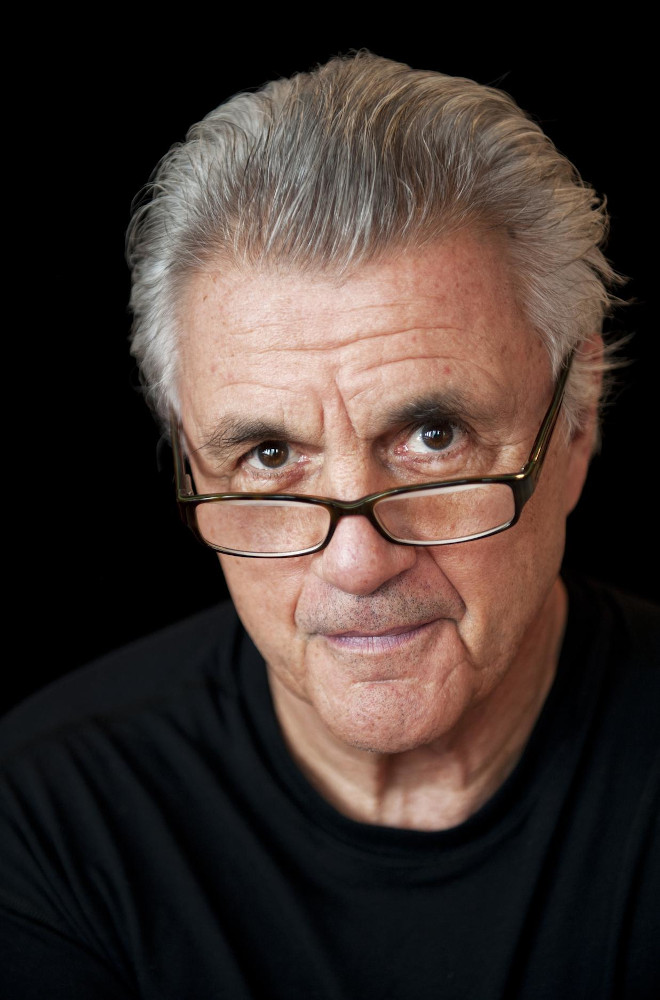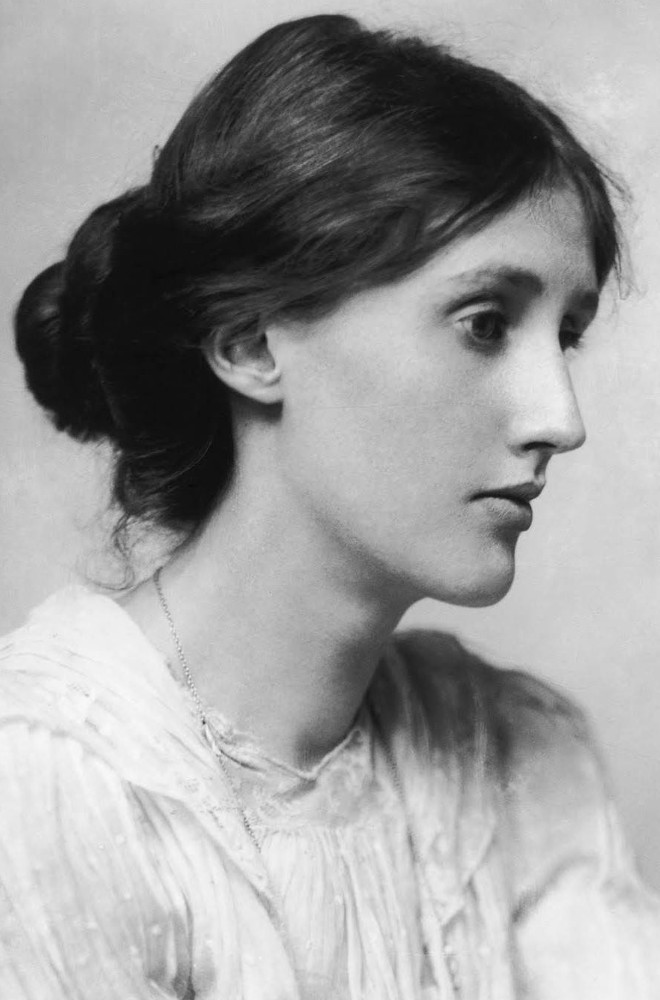 “His Blood Is Permissible”
“His Blood Is Permissible”
An author whom many people would be happy to kill must be really bad…or exceptionally good, especially when it comes to social commentary other writers aren’t brave enough to touch. There’s no way to discuss Salman Rushdie’s best books without first getting the issue of the fatwa against him out of the way.
Basically, back in 1989, Iran’s then-ayatollah declared Rushdie an enemy of Islam and encouraged all faithful Muslims to take his life. Though the ayatollah doesn’t speak on behalf of all, or even anything close to a majority of, Muslims, this resulted in at least two serious murder attempts.
Rushdie and Religion
Though he’s a strident Atheist, most outsiders would consider the offending passages in the book The Satanic Verses to be pretty mild; if they hadn’t been written by an apostate (a former Muslim), or Rushdie had simply chosen another title, they might easily have passed unnoticed.
He also makes a clear distinction between Islam as a religion and Muslim culture, which he believes to be hopelessly outdated, close-minded and intolerant. It is this outlook that informs many of the best Salman Rushdie books. Here are some of my favorite Salman Rushdie books, ranked according to no criteria but my own:
Best Salman Rushdie Books
| Photo | Title | Rating | Length | Buy |
|---|---|---|---|---|

|
Midnight’s Children | 9.84/10 | 560 Pages | Check Price On Amazon |

|
The Satanic Verses | 9.72/10 | 576 Pages | Check Price On Amazon |

|
The Khalifa Brothers Series | 9.64/10 | 2 Books | Check Price On Amazon |

|
The Moor's Last Sigh | 9.52/10 | 448 Pages | Check Price On Amazon |

|
Shalimar the Clown | 9.46/10 | 398 Pages | Check Price On Amazon |
Midnight’s Children

 An Indian Tale
An Indian Tale
Considering that this is only his second novel, the choice to stick with the magical realism angle he first explored in Grimus was a bold one. This gamble paid off: Midnight’s Children is frequently rated as one of the best Salman Rushdie books and won several prestigious awards.
Saleem Sinai was born at the same moment modern India came into being; he is one of the midnight children referenced in the title. Like him, all of those born between 12 and 1 a.m. have mystical powers. In his case, this takes the form of telepathy. Speaking to one another over the ether, they struggle to understand the nature and significance of their gifts. Meanwhile, in the real world, they and their families struggle as their infant nation suffers major growing pains.
Reflecting History
Prior to its subjugation by the British, “India” was a very loose collection of kingdoms, cultures, and languages; the term included modern Pakistan and Bangladesh. On its independence in 1947, new borders were drawn based on momentary convenience rather than actual cultural and religious geography, igniting a range of conflicts that continue to the present day.
Though India and Britain are both eager to claim this author as their own, Rushdie grew up in the former until age 14. The ever-present tensions and contrasts of his homeland had a marked effect on his worldview and form the basis of Midnight’s Children.
The Satanic Verses

 Bring an Open Mind and a Comfortable Chair
Bring an Open Mind and a Comfortable Chair
At the beginning of this story, our two protagonists, both actors, find themselves on an aircraft that’s been taken over by terrorists. After the aircraft explodes, they miraculously survive. However, neither is unaffected by the experience – in fact, they are each in a sense possessed by different mythological entities.
Both have one foot in Britain and another in India, though in very different ways. Their psychological transformations bring the contradictions and compromises in their natures into sudden relief, leading to almost 600 pages of carefully crafted (and sometimes confusing) prose.
A Bestseller Even Without the Ayatollah’s Free Publicity
There’s little doubt that the fatwa against the author made this one of the best-selling Salman Rushdie books ever. It’s also not all that hard to see why The Satanic Verses is considered offensive to Islam’s stricter interpretations. However, it stops well short of actual Muslim-bashing or the simplistic, East-versus-West, “Clash of Civilizations” dichotomy that’s unfortunately gained credibility in some circles.
Islam and its perceived defects aren’t even a major theme of the book. The reason this is possibly the best Salman Rushdie novel lies in the way it examines themes like cultural identity, estrangement, and violence. There are plenty of allusions to the Koran along the way, but The Satanic Verses is only about religion in the same way as Love in the Time of Cholera is about clean drinking water.
The Khalifa Brothers Series

 Thoughtful Fairytales
Thoughtful Fairytales
In these two books, sold separately as Haroun and the Sea of Stories and Luka and the Fire of Life, or in one volume titled Haroun and Luka, Rushdie applies his skill at magical realism and storytelling to young adult fiction. As such, he tones down some of the darker themes, yet still addresses a couple of challenging issues.
The closest parallel I can think of is Bill Pullman’s His Dark Materials trilogy (let’s leave Harry Potter out of this for now). As with those titles, there’s no reason why adults shouldn’t enjoy them, too: many would happily name these two as the most approachable and, in that sense, best Salman Rushdie novels.
Fables About Censorship and Oppression
The setting of these novels could be any city in India or even elsewhere, but with more than a dash of magic added and accepted by everyone involved. Stories – true, false, and metaphorical – are a major theme in the first book. The inability to tell them is a sign that something is seriously wrong and, as the author himself has pointed out in interviews, censorship tends to harm the marginalized in society the most.
Haroun and the Sea of Stories absolutely leaves you wanting more. Luka and the Fire of Life shares the same backdrop and characters, though it may appeal more to older readers. It’s equally engrossing, though, so be sure to get both books in the best Salman Rushdie book series at the same time. The pair would make a superb gift for a niece or nephew who’s just old enough to start asking questions about life’s important stuff.
The Moor’s Last Sigh

 A Fresh Take on History
A Fresh Take on History
This book’s title, as well as much of its contents, reference Boabdil, the last king of the last Islamic kingdom in Europe. Othello, the Moor of Venice, gets a nod too, while “Moor” is also the nickname of the narrator, Moraes Zogoiby.
Events in this epic novel span several centuries, following the hugely diverse lineage of Moor. His varied background also partly explains his compulsion to wander, though his physical heritage makes this difficult. He’s cursed to age twice as rapidly as other people and has one deformed hand. Some see these details as a metaphor for India’s rapid and haphazard modernization since 1947.
All About Love and the Love of Stories
One of the major themes in this book is the nature of love: romantic, familial, stunted, selfless; love of clan and faction, and love of art and beauty. Like all the best novels by Salman Rushdie, however, the story doesn’t get bogged down in the abstract. The plot contains all the action you could wish for, along with a satisfying number of twists and turns. It is, however, somewhat hard to read due to the sometimes convoluted phrasing.
One of the things I enjoy about the top Salman Rushdie books is that all of them contain several layers of meaning. What at first appears to be just a captivating story is often a complex allegory; points you thought you understood turn out to be more subtle. This is the kind of book you can’t read just once.
Shalimar the Clown

 A Story About Good and Evil in the Real World
A Story About Good and Evil in the Real World
Classic Muslim literature – which Rushdie is certainly familiar with – contains a number of characters that appear foolish but are actually very wise. Shalimar is not one of these, however. After what he perceives as a profound betrayal, he turns to the dark side of Islamic politics and devotes his life to revenge.
His counterpart is an American diplomat and father of the real protagonist, called India. Just as Shalimar isn’t just a one-dimensional bad guy, Max the hero has his flaws. Only India can claim to be innocent, yet still has to bear the weight of history she had little part in.
Tries to Be a Thriller
Though set in numerous countries and containing plenty of intrigue, Shalimar the Clown lacks the pace and suspense needed to appeal to fans of Joseph Finder or Helen McInnes. If it weren’t for the author’s tongue-in-cheek wit and psychological insight, it would have been a pretty tedious read.
Some people will see the complexity, characteristic of all the best books by Salman Rushdie, as a refreshing addition to a genre that often frames conflict in black-and-white terms. Others will find the details of Kashmiri politics utterly uninteresting. This novel definitely has its strong points, and when all is said and done remains one of the most popular Salman Rushdie books. However, it probably should never have been marketed as a suspense novel.
Shame

 Pakistan in All But Name
Pakistan in All But Name
Though Shame was written several years before The Satanic Verses, many of the author’s opinions had been formed by that time. In particular and on the surface, this story is about how traditional interpretations of Islam are incompatible with modern Feminist ideals. For this reason if no other, many readers regard Shame as Salman Rushdie’s best book.
Events play out against the backdrop of a certain unnamed country’s tumultuous separation from India and the various conflicts this brought about. What could have been a pretty dreary book is enlivened by the author’s way with words, good-natured humor, and of course his excursions into magical realism, like when “shame” comes alive as a flesh-and-blood monster.
A Battle of Values
The key to understanding this novel is given in the title (not to mention numerous Salman Rushdie book reviews). Inflicting shame on a person or group of people ultimately leads to tension and violence. The clearest example of this is when characters try to suppress inconvenient, shameful truths in the name of “revenge”.
Shamelessness – authenticity, or perhaps just refusing to accept society’s standards – leads to a particular kind of liberty, though not necessarily happiness. An obsession with honor, by contrast, places a person in a self-constructed prison. This is an oversimplification of this novel’s message; though. It’s far from the shortest on the Salman Rushdie book list, and rushing through it will cause you to miss out on a lot of its subtlety.
The Ground Beneath Her Feet

 A Modern Classic
A Modern Classic
A number of books have been set in the world of rock and roll. Many of them include elements of magic realism, too, if only in the form of drug trips. The Ground Beneath Her Feet stands alone in this subgenre, though. Numerous critics have praised it as the best Salman Rushdie book bar none, though I myself am waiting on more reviews of Salman Rushdie’s latest book, Victory City, before I make up my mind.
Unlike many of his other novels, The Ground Beneath Her Feet takes place mostly in Western settings, though the Indian subcontinent does make an appearance. So do several characters from previous Rushdie novels, though none of them take on a determining role.
Love It Or Leave It Alone
Some readers will no doubt find this book tortuously slow. Rushdie is an author who regards prose as an art form and not just a means of transmitting information. You don’t read Salman Rushdie books in order to have some quick fun, you digest them for their insights and the beauty you’ll find in their words.
The abundance of mythological and literary references in this book sometimes seems unnecessary, though, and some of the humor went a little over my head. I plan on re-reading The Ground Beneath Her Feet as soon as my to-do list clears up, though, and fully expect to find new treasures I overlooked the first time around.
Quichotte

 A Hopeless Quest
A Hopeless Quest
“Quichotte”, as you were doubtlessly wondering, is the French spelling of Quixote, as in the Man of La Mancha and friend of Sancho Panza. Apart from Salman Rushdie’s new book, Victory City, this is his most recent and shows his breathtaking abilities at full throttle.
In structure, this is a book within a book. A mediocre Indian-American novelist, Sam DuChamp, rewrites Don Quixote for the modern age. Shifting between Sam’s and Quichotte’s stories, this novel treats us to the adventures of not one but two charming yet less-than-heroic characters.
A Snapshot of Modern America
Though an Atheist, Salman Rushdie holds strong opinions about the universal nature of morality. It therefore comes as no surprise that he’s sharply critical of modern Western culture in this satirical book. Rampant commercialism, celebrity worship, facile religion, politics as showmanship, and moral relativism in its various forms all get a dose of Rushdie’s laser-focused wit.
Given its chaotic subject matter, this humorous book provides a kind of mental anchor against pseudo-intellectualism and disinformation masquerading as enlightenment. It’s hard to follow the intertwined and sometimes fanciful narratives, but it’s worth it for the social commentary alone.
The Golden House

 Stranger in a Strange Land
Stranger in a Strange Land
Like Quichotte and Fury, for which we couldn’t find a spot in our top-ten Salman Rushdie list, this novel is set mainly in the United States and delves into that country’s contemporary demons. (Rushdie has been living in America since 2000.) The author remains true to his roots, though: part of the story takes place in Mumbai.
Tom Wolfe, too, paints fantastically realistic portraits of American life. Inserting himself into these stories (in some form and not in all his novels) makes for great books, but an outsider’s perspective is also helpful in capturing an objective view of America’s confusion and loss of direction.
Salman Rushdie in Low Gear
Comparisons to Wolfe et al aside, the only real yardstick that applies to this author is his own work. Compared to Quichotte, the much earlier Midnight’s Children, and even the Salman Rushdie series best read by children, Haroun and Luka, something intangible seems to be missing from The Golden House.
I, for one, just can’t put my finger on it. It could be that this novel is written in a mostly realistic style, with no forays into the mystical. Perhaps the world and values of New York’s ultra-rich are simply too far outside my own experience. Rushdie remains a consummate storyteller, though, and he provides plenty of enjoyment and insights even on his off days.
East, West

 A Man of the World
A Man of the World
Raised in Mumbai (then still known as Bombay), educated in England, and finally transplanted to the United States, Rushdie has a unique and valuable point of view on each of these countries. He celebrates the various aspects of his identity in this collection of short stories.
Some of these seem autobiographical, at least in inspiration. The pop culture references, as in Quichotte, sometimes seem a little forced, but the humor and cultural observations – on internationally arranged marriages, radical Sikhs in Britain, and artifacts with magical powers – are priceless regardless of whether you hail from East or West.
An Interplay of Cultures
The book is divided into three parts, respectively covering tales from the Eastern and Western worlds, as well as the spaces in which these cultures overlap and mingle.
These stories are bound to be interesting to immigrants and travelers, whether they explore foreign climes in fact or merely through fiction. In a rapidly changing world, many of us feel out of touch with our roots. East, West is in that sense a search for a forgotten home – whatever that word may mean to the individual reader.
Final Thoughts
Nobody who’s read his work can doubt Salman Rushdie’s intellect, or indeed his compassion. As a writer, he has style to spare. The worst you can say about him (from a secular viewpoint, anyway) is that his books tend to be a little ponderous.
His criticisms of society, however biting, are always justified and usually presented in good humor. What will prevent new readers from giving Rushdie a try is not his sometimes contentious opinions but simply the weight of his books. He is an author you read partly so you don’t feel left out during conversations at dinner parties, not just to pass a few idle hours.
Michael Englert
Michael is a graduate of cultural studies and history. He enjoys a good bottle of wine and (surprise, surprise) reading. As a small-town librarian, he is currently relishing the silence and peaceful atmosphere that is prevailing.





